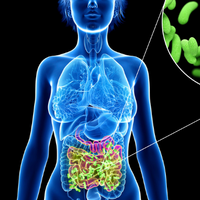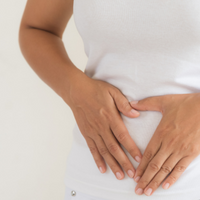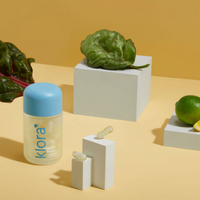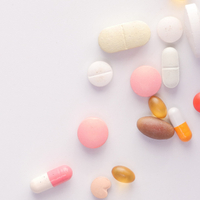5 Signs of an Unhealthy Gut
Upset Stomach
An upset stomach is perhaps one of the most common types of gastrointestinal problems among humans. The symptoms of this despised digestive issue may range from bloating and abdominal pain to diarrhea and excessive flatulence. Indigestion is another leading cause of an upset stomach in people of all ages. Even if you don't suffer from any chronic gastrointestinal conditions, you could still be vulnerable to having an upset stomach after a simple meal. An imbalance in your gut might make you more susceptible to such common symptoms in your stomach and the upper parts of the digestive tract.
Fatigue
If you feel tired on a regular basis, your gut might be the main culprit. Fatigue has been known to be associated with an unhealthy gut. Some people with irritable bowel syndrome often lack energy throughout the day. When you feel sluggish even after eating a meal or some light snacks, you could suffer from significant gut problems. If your gut biome is not properly balanced, you'll be at a high risk of contracting viruses and other harmful bacteria colonies that reside within your intestines. By interfering with the proper digestion process, these invaders will certainly compromise your energy and vitality.
Anxiety and Stress
A disturbance in your gut microbiome might be directly linked to depression, anxiety, stress, and other complications with the central nervous system. Inflamed intestines communicate with the brain and other parts of the CNS. You might become depressed and anxious because of the continuous signals from your gastrointestinal system. If you ignore the urgent signals from your gut, you might make the inflammation and other complications even worse. The physical stress in your brain could alter your mood and overall emotional well-being.
Cravings
A healthy appetite could be compromised by an excessive amount of negative bacteria in your gut. You might develop severe cravings for sugar and other sweets that ultimately feed the harmful microorganisms inside your intestines. High fructose corn syrup and other unnatural sweeteners could increase your cravings for plenty of other harmful food. In normal circumstances, you should only crave meals at regular intervals between the morning and evening.
Food Allergies and Intolerance
If you become intolerant to a wide range of food and beverages, your gut deserves some blame. A compromised microbiome inside the intestines could make you allergic to lots of common items that line the shelves of grocery stores. Harmful bacteria inside your gut will induce some of the allergic reactions to whatever you consume. In some cases, such microorganisms produce wastes and other compounds that adversely react with your food and drinks. Therefore, you might feel sick and nauseous when eating perfectly healthy meals, which interact with the toxic chemicals that are produced by bad bacteria inside your gut.
Simple and Effective Ways to Improve Your Gut Health
Consume Probiotics
By eating a sufficient amount of probiotics on a regular basis, you could mitigate, manage or prevent some of the most common problems with your digestive system. These naturally occurring microorganisms directly benefit the gut. Probiotics have been known to improve digestion in numerous ways. For example, these beneficial bacteria populations could prevent inflammation of the intestinal lining. Bloating and other common digestive issues might also be minimized by probiotics in sufficient amounts. Based on your unique anatomy and health, you should ingest specific strains of probiotics for optimum results.
Eat Prebiotics
The probiotics inside your gut must have a proper source of food to carry out their functions on a large scale. Prebiotics essentially feed the beneficial bacteria inside your gut microbiome. There are plenty of herbs and plants that are loaded with prebiotics, which are essentially fiber compounds that can't be broken down by the human body in a natural way. Prebiotics stimulate the growth and sustainability of probiotics inside your gut.
Hydration
Your gut might be disrupted by dehydration, especially on hot days during the summer season. Intestines continuously remove and manage the flow of water and other liquids during the digestion process. If there isn't enough water inside your gut, some of the natural digestive sequences might become compromised. Important soluble ions in the intestines will also lead to other disruptive events in the lower part of your digestive tract. Based on your weight and age, you should drink an appropriate volume of water on a daily basis.
Exercise
You could regulate your gut health by exercising on a regular schedule according to your physical capabilities and other notable restrictions. Physical activities are known to improve digestion from start to finish. For example, you'll stimulate more regular bowel movements when you walk or run for extended distances. The positive bacteria inside your intestines will also be stimulated by your exercises of any intensity. Likewise, the harmful bacteria inside your gut might be neutralized by the enhanced activity from probiotics. By boosting your immune system, regular exercise can also make you less vulnerable to viruses and bacterial infections.
Diet
By changing your diet, you could improve your gut health in the long term. Fatty and sugary foods have been known to cause a wide range of gastrointestinal problems and other health issues. If you reduce or eliminate such items from your meals, you might have less cravings and binges throughout the day. A diet that's high in fiber content can also provide plenty of benefits for digestion and gut health. When you shop for food at the grocery store, closely examine the labels for the nutritional content. Look for items that have lots of minerals, vitamins and other beneficial nutrients. Avoid items that have plenty of artificial ingredients, excessive sodium and high-fat content. However, unsaturated fat has been known to provide some health benefits.








0 comments